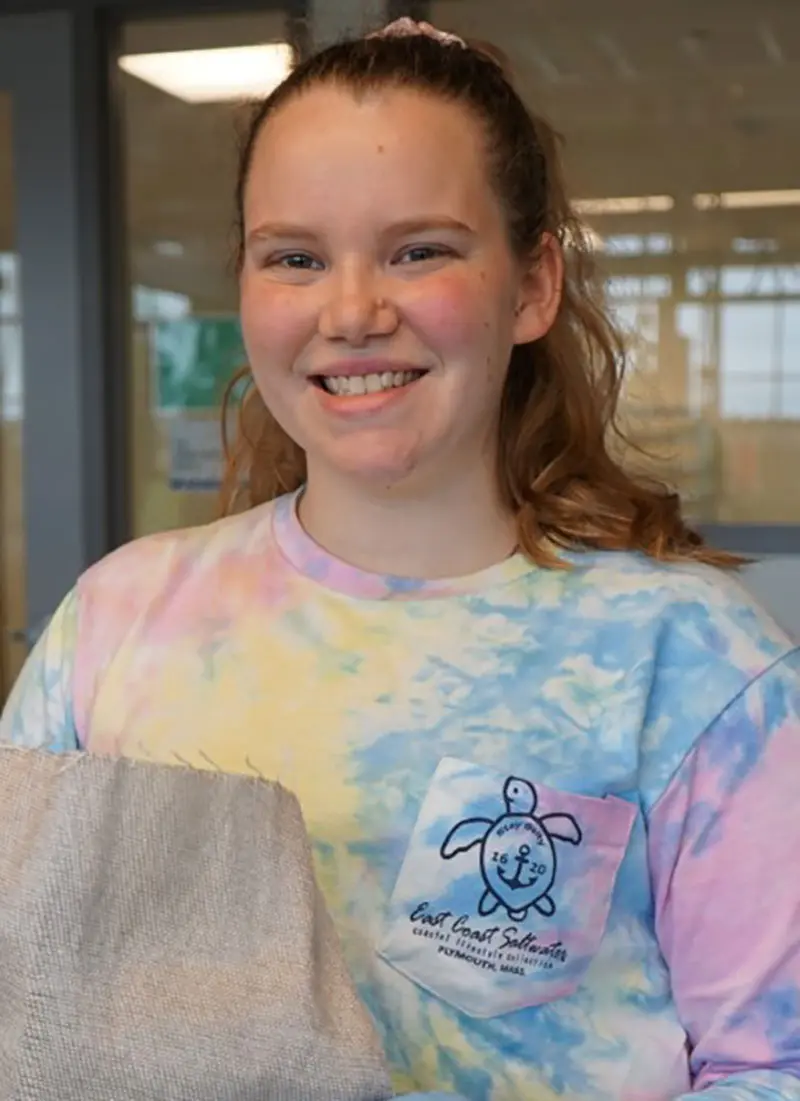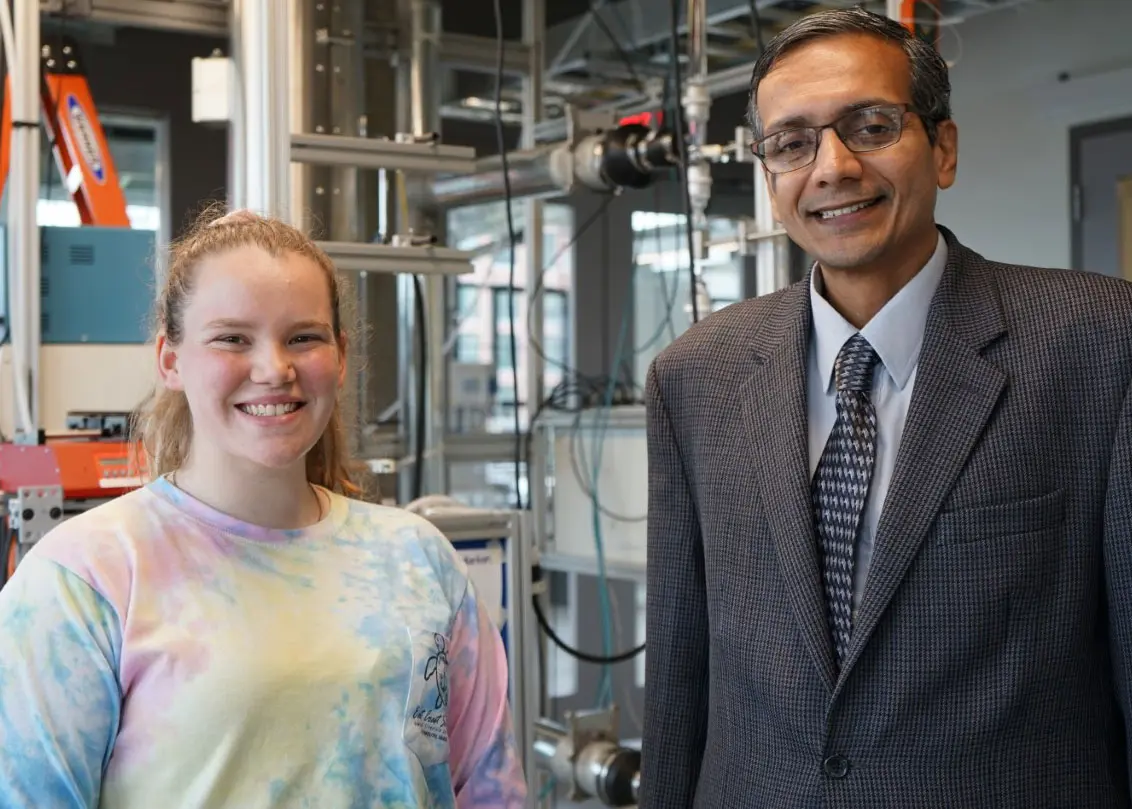Madison Reed got her introduction to engineering at the Old Colony Regional Vocational Technical High School in Rochester, Mass., where she studied computer-aided design and drafting.
She applied to UMass Lowell’s biomedical engineering program, knowing that she wanted to go to a state school for the price tag – and also knowing that UMass Lowell has a rigorous, highly regarded engineering program. A campus visit made UML her first choice.
“I really liked the campus and I made friends on my tour, so I thought that was a good sign,” she says.
In her first semester here, she quickly learned that she didn’t like biology, but she liked the idea of designing medical devices. She talked to Plastics Engineering Prof. David Kazmer, then chairman of the department, and decided to switch majors.
“I didn’t really have a super-strong reason for choosing biomed; I just knew that I wanted to do engineering and I wanted to help people,” she says. “The plastics department was really small and had a family sense to it, and I liked that because my high school graduating class was small, too: just over 110 kids.”
A meeting with her academic advisor, Prof. Ramaswamy Nagarajan, toward the end of her sophomore year shaped her undergraduate experience and inspired her to pursue a research career.
Reed asked Nagarajan about his research – and that question led to a job as a research assistant with him in the HEROES center, which conducts numerous collaborative projects with the U.S. Army Combat Capabilities Development Command Soldier Center in Natick.
Reed has worked at the university’s Fabric Discovery Center on various projects, including developing flexible solar fabric, formulating “green” fire-retardant coatings for soldiers’ uniforms and testing PPE – masks and medical gown materials – during the COVID-19 pandemic. She says it’s been great for her lab skills as well as for understanding the science she’s learning in her classes.
“I really like working for Prof. Nagarajan. He basically treats everyone like a grad student. He completely trusts me to get the results that we need from the experiments,” she says.
Nagarajan also persuaded her to reapply to the Honors College, which she’d quit her first year to focus on engineering. Now, she’s looking forward to taking some interdisciplinary, Special Topics in Honors seminars her senior year.
She also thinks the experience of doing original research and writing an honors thesis will prepare her for graduate school. She hopes to do her honors capstone research on converting algae into biodegradable plastic with Asst. Prof. Grace Chen, when the labs reopen.
While Reed is still interested in medical device development, she’s also thinking about pursuing a Ph.D. in plastics or polymer science, she says. In the meantime, she will spend another year at UML earning her master’s degree in plastics engineering through the bachelor’s-to-master’s program.
“I’d really like to be on the materials science side of recyclable and biodegradable plastics,” she says.


